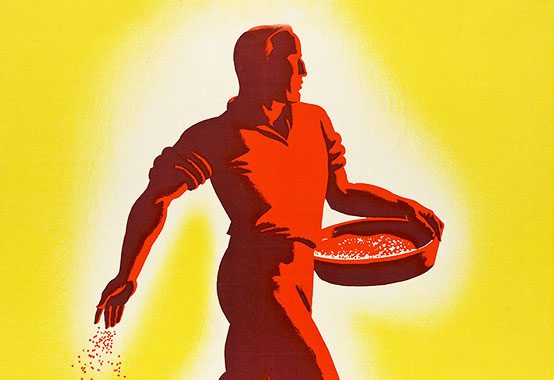Progressive Eugenics

Love it or hate it, the Progressive Era in American history has a definitive narrative. Aghast at the political corruption, dangerous working conditions, and fetid living situations produced by industrial capitalism, progressive reformers like Teddy Roosevelt sprang into action, using the reins of big government to tame the growing corporate beast in defense of average Americans during the first two decades of the 20th century.
“Progressivism has been portrayed as essentially a middle-class defense against the status pretensions of the new industrialists, a defense of human values against acquisitive habits, a reassertion of the older tradition of rural individualism,” wrote New Left historian Gabriel Kolko in his revisionist history of the Progressive Era, The Triumph of Conservatism: A Reinterpretation of American History, 1900-1916. That portrayal, still the conventional wisdom today, is wrong, as Kolko convincingly demonstrated: “It is business control over politics … rather than political regulation of the economy that is the significant phenomenon of the Progressive Era.” Kolko called this “political capitalism” or “the utilization of political outlets to attain conditions of stability, predictability, and security—to attain rationalization in the economy.” Today we know this simply as politics.
While Kolko demolished the myth that Progressive Era reforms were instituted to create a more economically just society nearly six decades ago, we had to wait until now for Thomas Leonard’s Illiberal Reformers: Race, Eugenics and American Economics in the Progressive Era to shine a light on what many progressive economists believed about workers, racial and ethnic minorities, and women. What Leonard found should disabuse anyone of the notion that these economists were bleeding-heart liberals who selflessly advocated for the marginalized and the dispossessed. Rather, with quotation after quotation, Leonard shows the dark heart of many progressive economists and their efforts at widespread social control through state coercion. The collective sense of superiority and contempt for ordinary people exhibited by the progressive thinkers that Leonard has unearthed is genuinely revolting.
As Leonard makes plain, progressives were largely a class of people above and apart from those their reforms affected. Descended from New Englanders with family ties stretching back to the Massachusetts Bay colony, progressive intellectuals had an evangelical fire for redeeming America in top-down fashion:
Progressives did not work in factories; they inspected them. Progressives did not drink in saloons; they tried to shutter them. The bold women who chose to live among the immigrant poor in city slums called themselves ‘settlers,’ not neighbors. Even when progressives idealized workers, they tended to patronize them, romanticizing a brotherhood they would never consider joining.
To put it crudely, they were snobs trying to civilize those they considered slobs. And if that didn’t work, they weren’t opposed to making dramatic policy proposals to control those they considered inferior. The progressives, you see, knew what was good for the “social organism.” They were benevolent doctors who could use state power to apply the cures society needed without the taint of self-interest.
Progressives, writes Leonard, “found a way to make a vocation of reform.” They did so first by transforming the obscure study of political economy into the university discipline of economics and then by erecting the administrative state, which they staffed and controlled, to carry out the scientific reforms they proposed. Their model for this expert-guided state was Germany, where many of the early progressive economists did graduate studies in political economy. The German economists, writes Leonard, were “socialists of the lectern” who “believed social problems could no longer be left to individuals or voluntary associations, but must be dealt with by an expert-guided state.”
These self-professed experts, however, were also Christians who believed, according to Leonard, “that a Kingdom of Heaven on earth could be built without Christ’s return.” As progressive economist Richard T. Ely wrote, “God works through the State,” and the progressives had every intention of being the Almighty’s instrument of change. Modest they were not.
Far from seeing the growing size of business and its scientific management techniques as a threat to local control of politics, as the populists did, the progressives were the champions of centralization and rationalization in every aspect of life. Efficiency was their watchword, and anything seen as inefficient didn’t deserve to survive. “Progressives,” writes Leonard, “regarded small business as inefficient and outmoded, and they largely applauded its destruction.” In factories, progressives embraced Taylorism’s surveillance and micromanagement of workers because it promised to create surpluses so large that labor and management would both be satisfied with their cut, thereby promoting industrial harmony.
It also didn’t hurt that Taylorism put people like themselves—the enlightened experts or “industrial statesmen,” as The New Republic’s co-founder Herbert Croly put it—in positions of authority. This helps to confirm Kolko’s observation that during the Progressive Era “no effort whatsoever was ever made to democratize the work situation and industrial control, much less consider the desirability of reducing technological efficiency, if necessary, in such a way as to make decentralization or workers’ control possible.”
But the progressives’ fetish for efficiency didn’t stop at the factory gates. The obsession was applied in charities, city schools, and even churches and the home. Much like today, politics was derided as inefficient, and the desire for a strongman was palpable. While campaigning for the presidency in 1912, Woodrow Wilson complained that the Constitution’s checks and balances were an 18th-century anachronism and that power should be consolidated in the executive. The only official to face a nationwide vote, Wilson believed the president should have the “liberty, both in law and in conscience, to be as big a man as he can,” concluding the only limit to his power should be “his capacity.”
Too much has been made of the relationship between American progressivism and European fascism, but it isn’t hard to see why such comparisons are made. And Leonard’s book makes such comparisons easier and easier, particularly when he shifts to the arguments for biological efficiency. Progressive economists were ardent eugenicists who believed the state had to preserve the health of the Anglo-Saxon race, no matter how many individuals must be trampled on.
At the end of the 19th century and beginning of the 20th, Darwin’s theory of evolution was all the rage among the country’s intellectual elite, who simply took what they wanted from it to fit their particular ideologies, whether they sided more with mythic laissez-faire capitalism or with socialism. According to Darwin, evolution occurred due to natural selection, the complex interplay between an organism and its environment. Progressives believed, however, that the administrative state could be substituted for nature, with experts selecting those who could receive public support and thus reproduce, so that inferior genes didn’t pollute the nation’s gene pool. “In other words,” writes Leonard, “eugenics proposed to replace random natural selection with purposeful social selection.”
Charles Van Hise, president of the University of Wisconsin, went so far as to argue that people’s genes weren’t really their own. Individuals were only stewards of their genetic material. “Human defectives,” Van Hise demanded, should turn themselves over to the state where they could be sterilized or institutionalized. “We know enough about eugenics so that if that knowledge were applied, the defective classes would disappear within a generation,” Van Hise said in a May 1913 address. That same year, sociologist Edward A. Ross defended the state of Wisconsin’s forced sterilization law with intellectual detachment: “The objections to it are essentially sentimental, and will not bear inspection. Sterilization is not nearly so terrible as hanging a man, and the chances of sterilizing the fit are not nearly so great, as are the chances of hanging the innocent.”
The eugenic origins of the minimum wage will no doubt be uncomfortable reading for modern-day progressives. Its explicit purpose, according to its architects, was to raise the cost of labor, particularly immigrant labor, to a point where employers only hired the right workers. This meant men of Anglo-Saxon heritage, who would benefit from higher living conditions that the minimum wage provided and produce fitter children. As Leonard writes:
By pushing the cost of unskilled labor above its value, a minimum wage worked on two eugenic fronts. It deterred immigrants and other inferiors from entering the labor force, and it idled inferior workers already employed. The minimum wage detected the inferior employee, whether immigrant, female or disabled, so that he or she could be scientifically dealt with.
Once the inferior laborers were identified, progressive intellectuals argued for state surveillance, with the targets to be “institutionalized, segregated in rural colonies, or even sexually sterilized.” University of Chicago sociologist and pastor Charles R. Henderson wanted them thrown into rural labor colonies where their “imperfect labor” could be managed by the state. Women of good stock, on the other hand, were relegated to the home by laws regulating how many hours they could work and how much they could make to protect “the woman’s fitness for motherhood.”
 Thoughts of extermination were also considered. Harvard economist and progressive Frank Taussig believed there were two classes of unemployed workers, the good ones—elderly and disabled—and the bad ones—alcoholics, the diseased, criminals. The latter “should simply be stamped out,” he wrote in his bestselling Principles of Economics. “We have not reached the stage where we can proceed to chloroform them once and for all; but at least they can be segregated, shut up in refuges and asylums, and prevented from propagating their kind.” This, remember, was a respectable position in the first two decades of the American Century.
Thoughts of extermination were also considered. Harvard economist and progressive Frank Taussig believed there were two classes of unemployed workers, the good ones—elderly and disabled—and the bad ones—alcoholics, the diseased, criminals. The latter “should simply be stamped out,” he wrote in his bestselling Principles of Economics. “We have not reached the stage where we can proceed to chloroform them once and for all; but at least they can be segregated, shut up in refuges and asylums, and prevented from propagating their kind.” This, remember, was a respectable position in the first two decades of the American Century.
“The progressives,” stresses Leonard, “offered uplift to some but exclusion for others, and did both in the name of progress.” They understood that state intervention in the economy creates winners and losers, and they had every intention of rigging the game in favor of those they deemed worthy, antiquated and inefficient civil liberties be damned.
Illiberal Reformers is a downright frightening tale of how intellectual arrogance and a belief in one’s own superiority leads to callous disregard for individual rights and dignity. Budding social engineers, whether the social justice warriors of the left or the theocratic conservatives of the right, should take note of this past and seriously reckon with it as they grope for state power to implement their messianic visions of the common good. But somehow I have a feeling they’ll be too thoroughly convinced of their own moral rectitude to take seriously the lessons of the Progressive Era. Cautionary tales have a way of missing those who need them most.
Matthew Harwood is a writer living in New Jersey. He is senior writer/editor at the American Civil Liberties Union. The views expressed here are his own.
Comments